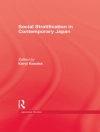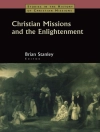The expanding field of nanotechnology is now one of the most promising areas of science. However, because some nanoparticles can have a negative impact on human health and the environment, the design of novel materials must always be accompanied by a comprehensive risk assessment. Until now, the information on the methods available has been fragmented and incomplete. This book is the first to provide a comprehensive review of recent progress and challenges in the risk assessment of nanomaterials by empirical and computational techniques. Topics covered include: benefits versus risks, carbon based nanomaterials, environmental detection and quantitative analysis, chemometric modelling, human exposure assessment, toxicity testing, nano-QSAR, risk assessment strategies, policy and regulatory frameworks.
Jadual kandungan
Nanomaterials: benefits and risks;
Experimental characterizing structural properties of nanoparticles related to their toxicity;
Structure-property mapping methods;
Modelling properties of nanoparticles based on quantum-mechanical methods;
Ontology;
Empirical determination of nanoparticles’ behavior in environmental media;
Computational mass-ballance modeling of environmental transport and fate of engineered nanoparticles;
Pharmacokinetics and biological fate of nanoparticles;
Pharmacokinetic-based modeling;
Modeling kinetics of nanoparticle cellular interaction and transport;
Toxicity and Ecotoxicity testing of engineered nanoparticles – experimental point of view;
In vitro toxicity of nanomaterials;
In vivo testing;
Computational modeling of interactions between nanoparticles and other species;
Comprehensive Environmental Assessment as a Tool for Nanomaterial Risk Assessment;
Predicting oxidative stress;
Nano-QSAR
Mengenai Pengarang
Professor Puzyn holds an M.Sc. and Ph.D. in Environmental Chemistry (University of Gda?sk, Poland). He is head of Laboratory of Environmental Chemometrics. Fellow of the Japan Society for the Promotion of Science, Jackson State University (US) and the Foundation for the Polish Science. Author and coauthor of about 40 publications related to computational methods in risk assessment of novel chemicals, including nanomaterials. Editor of a book entitled Recent Advances in QSAR Studies: Methods and Applications in a book series Challenges and Advances in Computational Chemistry and Physics published d in 2010 by Springer.












